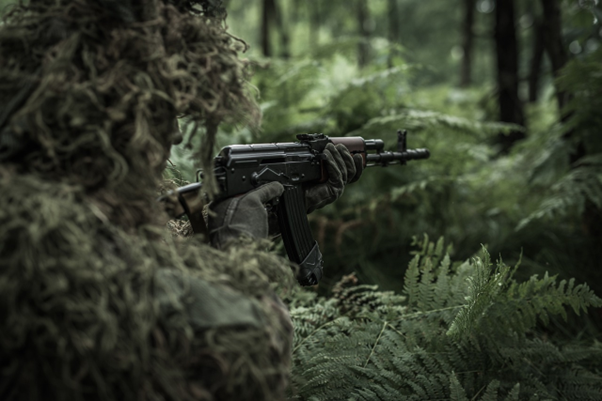In recent years, military conscription has reemerged as a pressing issue in Southeast Europe. Following Croatia’s decision to restore mandatory military service, Serbia has announced a similar move. The reintroduction of conscription in both countries reflects growing concerns over security, geopolitical shifts, and a perceived need for greater national defence capabilities. As tensions simmer in parts of Europe, particularly with the ongoing conflict in Ukraine, the Balkans are once again reassessing their defence strategies. Serbia’s and Croatia’s revival of military service raises important questions about whether this trend will spread to other Balkan states.
Croatian step towards the renewal of military service
Although Croatia was the first Balkan country to propose reinstating mandatory military service, by late October, the legislative process had not yet approved the move, and final details remain undisclosed. Defense Minister Ivan Anušić stated in September that the Ministry and Armed Forces were awaiting a political decision, and the process likely faced delays until after December’s presidential elections to prevent it from becoming a campaign issue. A January start, initially rumored, now seems improbable, with changes to the Law on Defense postponed until after the elections.
Anušić emphasized that the current system must change, regardless of who becomes president, to ensure the Armed Forces function smoothly. While some details were shared, such as plans to train between 17,000 and 18,000 recruits annually, conscientious objection could remain an issue, due to various reasons, mostly logistics and financial.
Meanwhile, however, interest in voluntary military service in Croatia is growing. In October, 299 recruits enrolled, a significant rise compared to last year. The Defense Ministry reported a 117% increase in voluntary conscripts, potentially driven by a recent 30% salary raise for active personnel and the looming return of mandatory service.
Belgrade is following in Zagreb’s footsteps
The Serbian government has also announced plans to reinstate mandatory military service starting in September 2025, with soldiers expected to begin training the following spring. However, it should also be added here that the renewal of military service has not yet gone through the legislative process.
The officially presented plan is that the service will last 75 days (60 days of training and 15 days of military exercise) and involve 20,000 recruits annually, but logistical preparations, including the renovation of barracks, must be completed first. Men up to age 30 will be required to serve, while certain professionals, such as engineers, may be placed in specialized roles. Recruits will also have the opportunity to earn driver’s licenses as part of their training. General Milan Mojsilović emphasized that Serbia is behind in restoring military service, arguing that the delay has weakened the country’s defence capabilities. According to the details he shared, the first 30 days of training will focus on basic skills such as shooting and medical care, followed by tactical exercises, with different units specializing in infantry or technical roles.
The municipality of Svilajnac has partnered with the Ministry of Defense to rebuild the „Lazar Stojanović“ barracks, which has been inactive for two decades, offering financial support and housing for military personnel. The barracks‘ reopening is expected to boost the local economy and demographics. Whether this repair will take place is not yet known, for now. Nevertheless, Serbia, like Croatia, will have to invest in the renovation of military facilities in general to be able to provide accommodation and space for the training of a set number of soldiers each year.
The proposal to bring back mandatory military service was, of course, also met with opposition. Opposition emerged from the Democratic Union of Vojvodina Hungarians, who claim the ruling coalition is ignoring the views of Vojvodina Hungarians on this issue. Despite objections, preparations for military service are set to proceed.
What about the rest of the Balkans?
At the beginning of October, Radio Free Europe (RFE) published an article about the ongoing discussions on the return of mandatory military service also in Montenegro. According to them, Defense Minister Dragan Krapović supports the idea, although the Ministry of Defense emphasizes that any decision would require a broad consensus and analysis of potential consequences. Military analyst Aleksandar Radić believes Montenegro should follow the regional trend, noting for the RFE that about a third of NATO countries still have mandatory service.
Radio Free Europe claimed in their article that Kosovo has also expressed its intention to introduce mandatory military service. However, it should be added here that the current Prime Minister, Albin Kurti, spoke about the creation of mandatory military service lasting three months as early as 2021. According to military analyst Ramadan Ćehaja, the introduction of the mandatory service would be too expensive for Pristina. There is also another factor – international pressure, where the West could intervene against a similar move by Kosovo.
Aleksandar Radić believes that the question will be opened also in Northern Macedonia, but not in Bosnia and Herzegovina, because of the complexity of the situation there. Until mid-November, there was no information indicating a move towards mandatory military service by Skopje, Sarajevo or Tirana. Albania and North Macedonia have the advantage of NATO membership, which has allowed them to transform themselves into a professional army. Croatia, however, also has NATO membership status, and yet Zagreb is headed towards resumption of military service. It can be assumed that if Belgrade and Zagreb bring the service to a functional stage, the remaining countries will also start to actively consider this option. In this case, however, there are a large number of external and internal factors that can bring about change overnight and put the issue on the table. With the deteriorating international environment, it would not be surprising if mandatory military service is introduced in all Western Balkan countries by 2030.
Author: Richard Straka




















